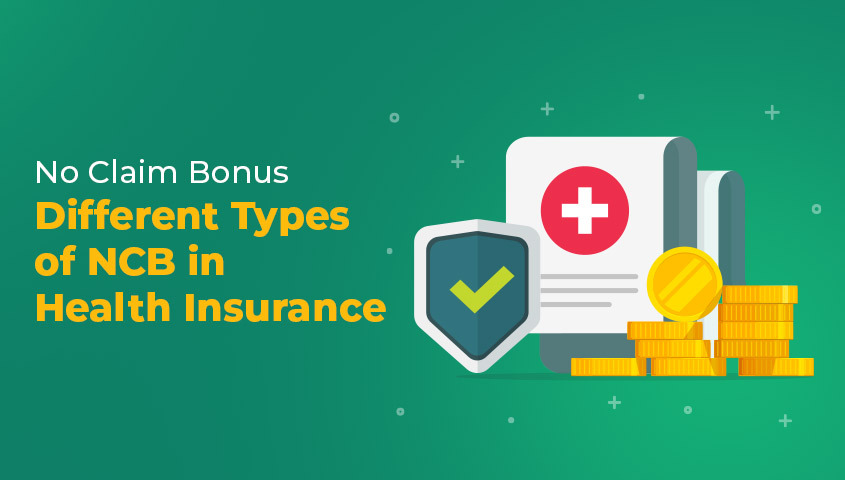
When it comes to health insurance policies, there are two variants that you can choose from – individual policy and family floater policy. Both these policies allow coverage to family members but the way the coverage is provided is different. This creates a major difference between the policies and gives rise to the merits and demerits of both.
Table of Content
- Individual Health Insurance Policy
- Family Floater Policy
- Difference between floater and individual policy
- Pros and Cons
- Which one to choose? Family Floater or Individual Health Insurance
Let’s understand these policies in detail and their respective pros and cons –
What is an individual health insurance policy?
An individual health insurance policy is one that covers one individual under the plan. The insured member is covered up to the sum insured independently and can make claims up to the coverage limit. The premium depends on the age of the insured member.
What is a family floater policy?
A family floater policy is one that covers different members of the family under a single policy. The policy has one sum insured and it is shared between the insured members. Each member can avail coverage up to the sum insured. However, if one member makes a claim, the sum insured is used up. Thereafter, if another member makes another claim within the same policy year, the unused sum insured would be available.
For example, say four members are covered under the policy and the sum insured is Rs.10 lakhs. If one member makes a claim of Rs.6 lakhs, other members can make a claim up to Rs.4 lakhs only. The premium of the family floater policy depends on the age of the eldest member.
What is the Difference between individual and family floater policy
Here are some of the main differences between individual and family floater policies –
| Individual policies | Family floater policies |
| Single sum insured for a single individual | Single sum insured shared between all the family members on a floater basis |
| The individual can make a claim up to the sum insured | Any insured member can make a claim up to the sum insured. However, if one member makes a claim, the sum insured gets used up. If another member makes a subsequent claim in the same year, the coverage level is reduced by the amount already paid as claim |
| The premium depends on the age of the insured member | The premium depends on the age of the eldest member |
| If the insured member does not make a claim in a policy year, a no claim bonus is awarded | If any insured member of the family does not make a claim in the policy year, a no claim bonus is awarded. However, if any one member makes a claim, the bonus becomes invalid |
Pros and cons of individual and family floater plans
Now that you know the difference between these two types of health insurance plans, here’s a look at their respective pros and cons –
Individual health insurance
- Pros
- You have complete control over the policy
- You can avail of the coverage benefit that you need
- If you don’t make any claim, you get the benefit of a no claim bonus
- Lifelong renewals are available if you renew the policy every year
- If you buy individual plans for every family member, their claim experience would not impact your coverage
- Cons
- If you are insuring multiple members of the family under independent individual plans, the collective premium would be high. This might prove to be unaffordable
- Since the premium is higher, you might not be able to avail of an optimal sum insured
- Managing individual policies for each member might prove challenging
Family floater health insurance
- Pros
- All the family members get covered under a single plan. This is convenient and also easy to manage
- The premium is cheaper compared to individual health plans for each family member
- Every member can enjoy coverage up to the sum insured of the policy
- Cons
- The coverage for a member would be reduced if there had been a prior claim by another member
- If any one member makes a claim, you lose out on the no-claim bonus
- Dependent children are allowed coverage only up to 23 or 25 years of age
Family Floater or Individual Health Insurance Which is better
Both individual and family floater plans have their respective pros and cons. The choice of a suitable policy depends on your coverage needs. A family floater policy makes sense if –
- You are a young family
- You need to cover yourself, your spouse, and dependent children
On the other hand if you want an independent policy for yourself you can opt for an individual health insurance policy.
Moreover, dependent parents should not be covered under a family floater plan, ideally. This is because their addition would rack up the premium since their age would be considered for premium calculation. Moreover, they might make frequent claims on the policy which would hamper the no claim bonus.
So, you can opt for a family floater policy for self, spouse, and children and another policy for your dependent parents for their coverage needs. This would provide optimal coverage as well as an additional tax benefit on the premium paid for your parents’ plan.
So, understand what individual and family floater policies are all about and know their pros and cons. Assess your coverage needs and then choose a suitable policy that provides all-inclusive coverage.
Found this post informational?
Browse Turtlemint Blogs to read interesting posts related to Health Insurance, Car Insurance, Bike Insurance, and Life Insurance. You can visit Turtlemint to Buy Insurance Online.
































